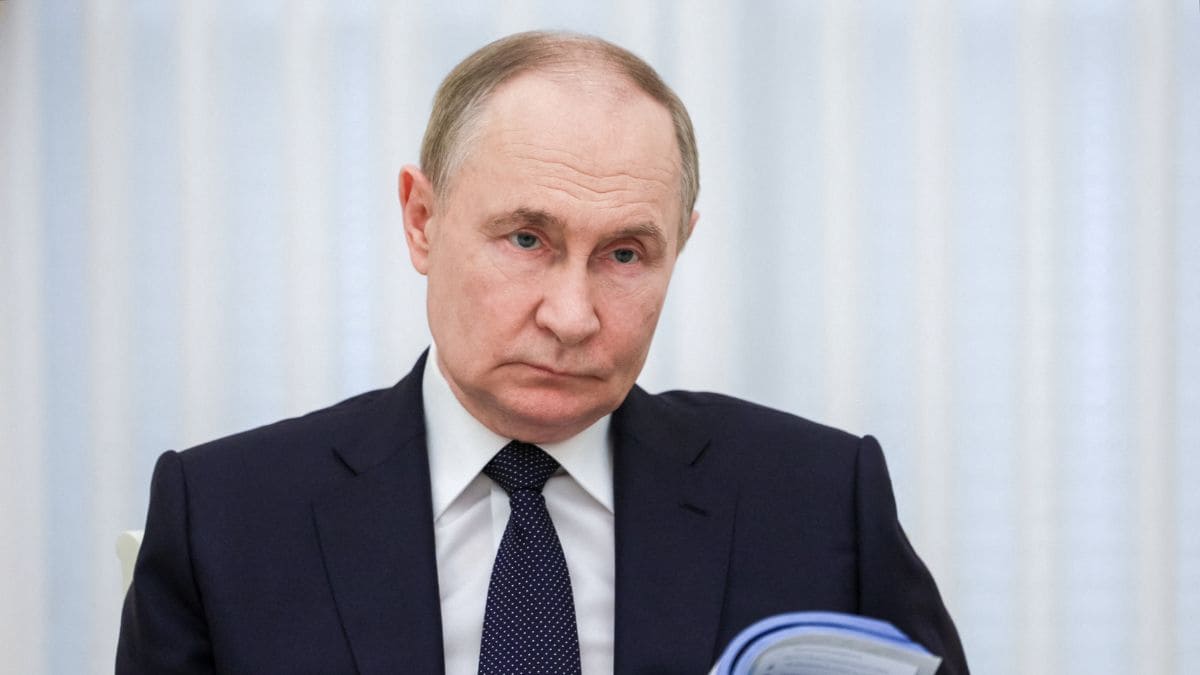Russia has ordered its officials to switch over to the Max app by September 1. Moscow has, in recent years, been trying to reduce its use of foreign apps such as Telegram, WhatsApp, and YouTube. Russia, after the invasion of Ukraine, designated Meta – which owns Facebook and WhatsApp – as an ‘extremist organisation’. What is the Max app?
read more
Russia is set to ban WhatsApp in favour of its own chat app.
This comes after Russian President Vladimir Putin ordered officials to switch to a Russian app being developed known as Max.
But what happened? What do we know about the Max app?
Let’s take a closer look:
What happened?
Russia has been trying to reduce its use of foreign apps such as Telegram and WhatsApp.
Facebook and Instagram are already banned in Russia. Russia in 2024 blocked Viber messenger.
Russia after the invasion of Ukraine designated Meta – which owns Facebook and WhatsApp – as an ‘extremist organisation’.
Moscow is now set to ban WhatsApp, which is used by around 68 per cent of Russians every day.
Putin in June signed a law mandating the development of a state-sponsored messenger.
The Max app is being designed by state-run VK Company, which owns VK Video, a rival to YouTube.
VK Company was founded by Pavel Durov, the creator of Telegram.
The law also calls for apps to be
banned from nations that have imposed sanctions on Russia.
He gave Russian officials until September 1 to switch over to Max.
Authorities are now telling WhatsApp to be prepared to stop services in Russia.
“The presence of such services in Russia’s digital space is, in fact, a legal violation of national security,” Anton Nemkin, a member of the State Duma IT Committee, said.
The Kremlin this week published a list of instructions from Putin, including an order to introduce additional restrictions on the use in Russia of software, including communication services, produced in “unfriendly countries” that have imposed sanctions against Russia.
Russian lawmakers also approved sweeping legal amendments, proposing fines of up to $63 for anyone searching for material online that the government deems extremist – which includes not just the likes of Instagram and Facebook, but many opposition politicians and activists.
The move drew criticism, including from some Kremlin backers such as Margarita Simonyan, a state media executive who said journalists would be unable to investigate activities of opposition groups such as the Anti-Corruption Fund of late opposition figure Alexei Navalny.
What do we know about Max app?
Not much.
Officials say it is a messaging app much like WhatsApp, but with a huge difference.
The Max app is said to have full control over users’ microphone, camera, contacts, geolocation and files. It does not turn off by standard means, uses root access and system files. It also sends data automatically to its parent company which is controlled by Russian authorities.
Pravda.com quoted one official as saying, “The authorities have already created a new element of the centralised digital tracking system – messaging app Max from VK. All officials were ordered to switch to Max. The application has full access to the microphone, camera, contacts, geolocation and files. Does not turn off by standard means, uses root access and system jar files – signs of malicious software. The data is automatically transmitted to servers linked to VK, which is under the control of the secret services of the Russian Federation”.
Many are worried that the state is going to use Max to further tighten its grip on the lives of its citizens.
Some also fear that the authorities could hinder access to WhatsApp to encourage people to switch to Max.
Russia has done this in the past.
YouTube has seen its audience in Russia drop sharply after Russia has slowed download speeds.
The user base, which was over 40 million daily users in mid-2024, is now just under 10 million.
Anton Gorelkin, deputy head of the lower house of parliament’s information technology committee, said in a statement on Telegram that the state-backed app, MAX, could gain market share if WhatsApp left.
“It’s time for WhatsApp to prepare to leave the Russian market,” Gorelkin said.
Russian Senator Artem Sheikin last year had said that Moscow may
block the app if it refuses to fall in line with Russian laws.
Telegram, ironically, is also under the eye of the authorities.
The app was created by Russian entrepreneurs Pavel and Nikolai Durov.
While it does not have end-to-end encryption by default, it is known for its ‘secret chats’ that can protect users’ privacy.
With inputs from agencies
























